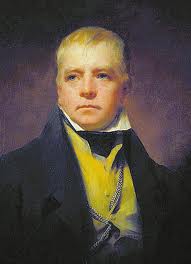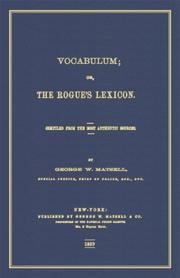A Call To Revitalize Obsolete Words
When is the last time you heard someone say, “Zounds!” outside of an episode of Batman with Adam West? Have you ever been called a “snollygoster” or a “dastardly fiend”? If not, it is proof of the sad state of affairs the English language has come to. Internet acronyms–LOL, ZOMG, WTF, and so on—play legitimate roles in our daily speech and even have entries in the Oxford dictionary, while other, more expressive terms have been left by the wayside. And while I am all for the evolution of languages according to a society’s needs, some old-timey words are so fantastic that their extinction is nothing less than a tragedy.
“Zounds,” for example has always been a long favorite of mine, ever since I first read it in the comic Calvin and Hobbes. (It was a favorite exclamation of Calvin’s sci-fi alter ego, Spaceman Spiff.) It’s wonderful because it’s not exactly an expletive, and no one will really be sure what you’re saying if you shout it dramatically at them. Actually, it’s a term dating back to medieval times, which comes from the words, “Christ’s wounds.” (Incidentally, many linguists have pointed out that, in the secularization of western societies, many languages are moving away from religiously themed swearing in favor of more sexual and scatological terms. Ex. “What the f*ck?” is commoner than “What the hell?” and “Holy sh*t!” has come to replace more old-fashioned outbursts, such as “Goddamn!” and “God’s teeth!”)
Other words, while they were coined for very specific situations in the past century, have just as much relevance in our current society. I’ve already talked about the word “comstockery,” named after Anthony Comstock, book-burner and self-appointed morality police, which can be used as a jibe in any situation where artistic expression is being squelched. The 19th century word “snollygoster” refers to an unscrupulous person not guided by principles, especially a politician. The term “bookwright” was a contemptuous word used in reference to authors and other bohemian lowlifes. There are still plenty of opportunities to use these words today, with the added bonus of you sounding like a character right out of a vaudeville show.
The previous century has limitless resources of city and zeitgeist-specific words. Authority figures in Old New York had an entire “Rogue’s Lexicon” to decipher the slang used by the city’s crime gangs, a mishmash of Irish, Italian, Yiddish, Spanish, and German terms, where “fen” referred to a common woman and “swell” referred to a well-dressed fellow of the upper-class. The word “selcouth,” which seems to have only ever been used by Sir Walter Scott, is a very useful word which denotes something unusual, strange, and marvelous. More words no longer in use from Scottish English are “curglaff,” which means the shock you get when you jump into a pool of cold water, and the verb “to lunt,” which means to walk with a pipe in your mouth.
Going back even farther to words gleaned from the dawn of the modern English language, you have “snoutfair,” which means an extremely handsome person, and, my favorite, “wonder-wench” meaning a sweetheart. It seems unfair that such vibrant words should have been obsolete after a few centuries, while others survived to become staples of the language—after all, Shakespeare coined the terms “eyeball,” “bloodstained,” “madcap,” and “moonbeam.” While plenty of these words still show up in historical novels and period dramas, they are for all practical purposes extinct unless an effort is made to reintroduce them to our daily speech. So the next time someone cuts you off in traffic, or you have something to say about the state of the government, or you want to sneer at some hipster who’s just self-published a book, always know you have a wealth of time-honored words to choose from.
What other antiquated words can you think of?


